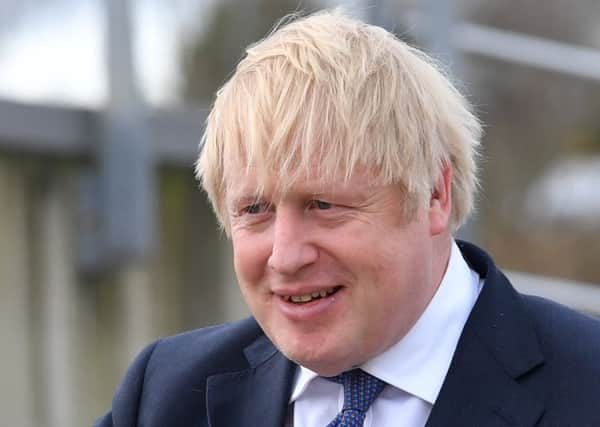UK Government must never be allowed to blacklist journalists it doesn’t like – leader comment


If there’s one thing that unites the dictators, tyrannical monarchs and undemocratically ‘elected’ presidents of this world, it is a passionate hatred of the free press.
In a country where an individual has illegitimately assumed absolute control, they become like the sacred king in Scottish anthropologist James George Frazer’s book The Golden Bough, constantly living in fear of being murdered by their successor. Having strived for power, they now find themselves trapped by it, almost forced to lash out, sometimes with deadly force, at those who dare ridicule them or point out flaws.
Advertisement
Hide AdAdvertisement
Hide AdOver the last few years, an alarming trend has been gathering force in the democracies of the world, in which so-called ‘populist’ leaders have started to attack the press in various different ways.
In Vladimir Putin’s Russia, “murders and physical attacks against journalists continue to go unpunished”, according to Reporters Without Borders. And Draconian laws have been used by the state to put pressure on the press to the extent that “leading independent news outlets have either been brought under control or throttled out of existence”, it adds in the 2019 World Press Freedom Index entry for 149th-placed Russia.
‘Enemy of the People’
However, some populists have adopted slightly subtler tactics. Donald Trump, for example, regularly lambasts the “mainstream media” or what he sometimes calls the “fake news media” and “the Enemy of the People”, a phrase long associated with dictators like Stalin.
Membership of this group appears to include most of the biggest names in American journalism: the Washington Post, the New York Times, NBC News, ABC, CBS and CNN. It is a tactic designed to cast doubt on anything they report and bolster news organisations that explicitly support Trump.
In this respect, Boris Johnson is not remotely like Putin or even Trump. However, the decision to bar journalists working for selected news outlets from a briefing on his Government’s Brexit strategy given by civil servants, who are supposed to be politically neutral, is an alarming sign of a step towards this populist strategy. The Scotsman and other Scottish media were also not informed about the briefing.
Such actions by politicians are not unprecedented. In 2014, reporters from the Telegraph, Daily Mail and Daily Express said they were barred from then First Minister Alex Salmond’s first press conference after the independence referendum, although this was perhaps less serious as it was held to announce his resignation.
All-for-one solidarity
But for anyone who thinks such actions are not particularly worrying, the UK Government’s ban on some members of the press resulted in a boycott of the briefing by leading political correspondents, including the BBC’s Laura Kuenssberg, ITV’s Robert Peston and reporters from the Telegraph, the Daily Mail, the Sun, the Financial Times and the Guardian.
This rare display of all-for-one solidarity across the press’s political spectrum was designed to send a message to the UK Government that it must heed – the British mainstream media will not collude in this populist tactic.
Advertisement
Hide AdAdvertisement
Hide AdPoliticians can obviously give interviews to individual journalists they think will give them more favourable coverage or, just as Johnson avoided the BBC’s Andrew Neil ahead of the general election, they can avoid journalists they fear.
But they absolutely cannot enlist civil servants and the apparatus of Government to systematically exclude news organisations that criticise them in an attempt to influence scrutiny of their actions.
And it is a challenge to the freedom of the press that journalists must stand against. The alternative is to take an immoral, dishonest path towards providing increasingly obsequious coverage in the hope of avoiding being added to the blacklist.
